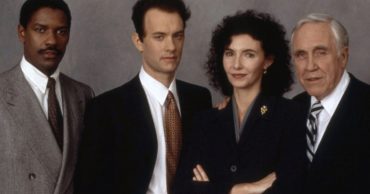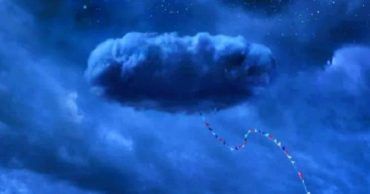Wall-E is one of those clever animated movies that make you think. It makes you question your reality, which leaves a significant mark on you. Unfortunately, it’s been over a decade since Pixar released it, and sadly, some of its predictions came true.
Wall-E follows the story of a trash compactor robot (called Wall-E) who lives on now abandoned and waste-covered Earth. After running into another robot, they fall in love and embark on a life-changing journey that will decide the fate of humanity.

Credit: Wall-E
Even though it has little to no dialogue, the movie is emotional, funny, and heart-melting. But it also raises some important questions, showing us a dystopian and tech-enabled future (that sounds more real every day).
So let’s look at what Wall-E got right about the future.
Pollution Is a Huge Problem
Wall-E portrays a dystopian future where the Earth has become so polluted that it’s practically uninhabitable. Because of the amount of waste and pollution, humans have fleed Earth and started living in spaceships. Although we haven’t reached that level of pollution, it seems like we’re getting there.
Unfortunately, one of the things that Wall-E got right about our future is that pollution poses a massive problem to humankind. Pollution is the most significant environmental cause of premature death and disease, causing more than 11 million worldwide and more than 200 million pollution-related health problems.
Add global warming and plastic waste to the mix, and you have a non-promising future. Of course, we hope we still have time to turn the odds in our favor and save the planet, but if not, we may be closer to the harsh reality of this phenomenal animated film.
Everyone’s Glued to Their Phones

Credit: Wall-E
One of the most bizarre things in Wall-E was not the recycling robot left alone on Earth. The human race is totally tech-dependent, practically immobile, and constantly glued to their phones. While this may have looked a little bit odd in 2008, it doesn’t strike us right now.
Let’s face it; we’re always on our phones. We depend on them. We can’t live without social media, Google Maps, to-do lists, and other helpful apps. So the future that Wall-E predicted is practically already here.
We Have Cleaning Robots
iRobot, Roomba, Roborock, you name it. There are more cleaning robots than we can count. They do all the cleaning for you; they mop your floors and vacuum your carpets. But this wasn’t normal back in 2008 when Wall-E came out. So, that’s another vital prediction from the film that came true.
The movie goes as far as to have robots do all the work instead of humans. There are security, service, and robots controlling the ship. We might not be there yet, but we’re headed in that direction.
We’re Constantly Bombarded With Ads

Credit: Wall-E
Another exciting thing that Wall-E got right about the future is the crazy amount of advertisements we’re constantly exposed to in our everyday lives. Just like in the movie, we’re constantly bombarded with ads, whether that’s on social media, billboards, or television.
Brands collect our information and behaviors to place specific products and send subliminal messages. Then, they advertise to us without realizing it through influencers, targeted ads, and personalized texts. It’s one of the most precise predictions this animated film madee about our future.
We Have Recycling Robots, Similar to Wall-E
Wall-E spends his lonely days collecting waste, sorting out garbage, and recycling materials. He’s committed to this mission despite seeming aimless and vain. He’s a cute recycling robot that seemed like science fiction back then, but now is the time to ask ourselves: Is he a work of fiction?
Today, there are companies developing recycling robots similar to Wall-E. Of course, they’re not as cute as he is, but they get the work done. Take ZenRobotics, for instance. This high-tech company specializes in robotic recycling technology and has developed several robot models to sort waste materials for us.
So, as you can see, far too many things from Wall-E hit a little too close to home. We’re still optimistic about our future, though, and we hope we will save our planet from the disastrous effects of pollution.
 Follow Us
Follow Us





